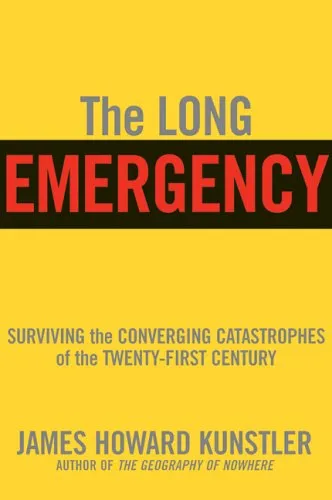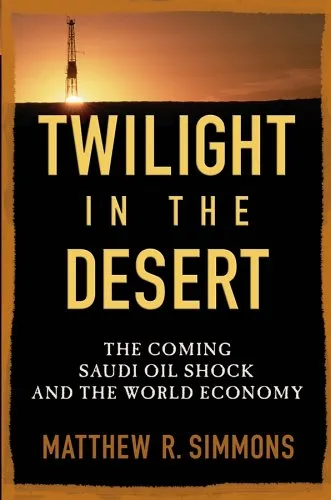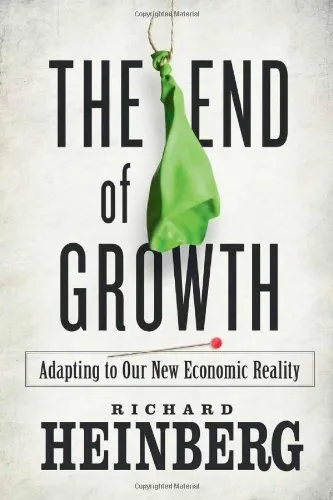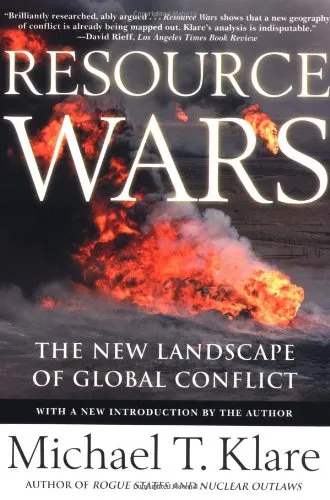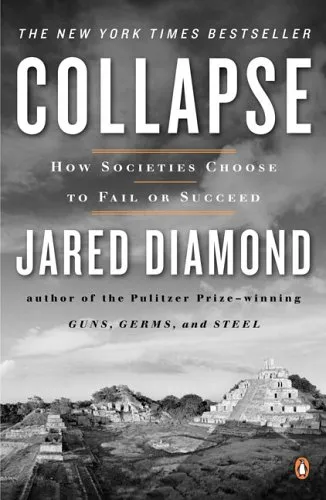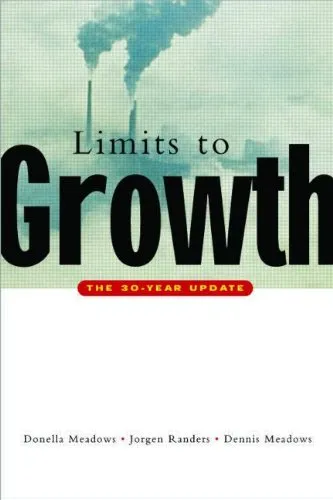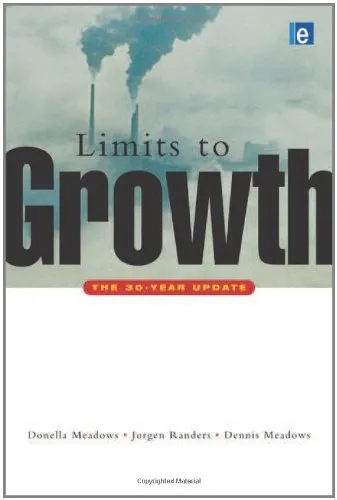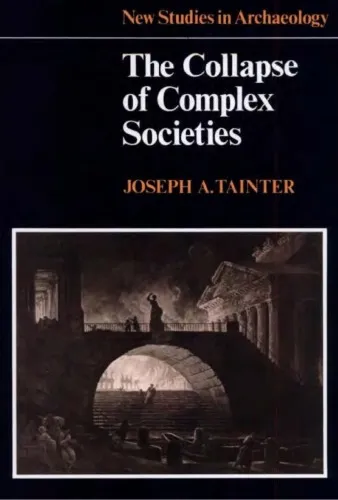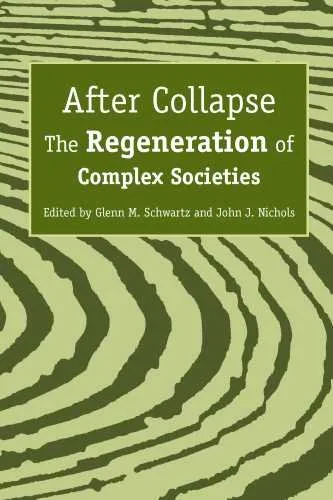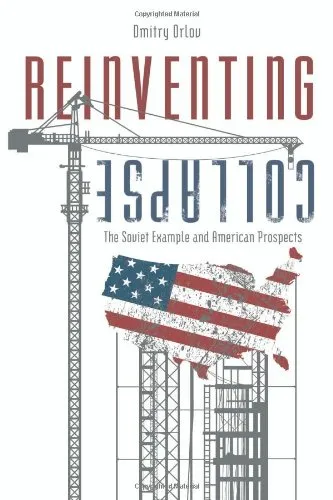Crossing the Rubicon - Decline of the American Empire at the end of the Age of Oil
4.1
بر اساس نظر کاربران

شما میتونید سوالاتتون در باره کتاب رو از هوش مصنوعیش بعد از ورود بپرسید
هر دانلود یا پرسش از هوش مصنوعی 2 امتیاز لازم دارد، برای بدست آوردن امتیاز رایگان، به صفحه ی راهنمای امتیازات سر بزنید و یک سری کار ارزشمند انجام بدینکتاب های مرتبط:
Persian Summary
معرفی کتاب
کتاب «Crossing the Rubicon: Decline of the American Empire at the End of the Age of Oil» اثری مهم از مایکل سی. روپرت و کاترین آستین فیتس است که در آن به تحلیل سقوط امپراتوری آمریکا و چالشهای ناشی از پایان یافتن دوران نفت میپردازند.
خلاصهای جامع از کتاب
این کتاب به بررسی رویدادهای سیاسی، اقتصادی و محیطی میپردازد که به تدریج منجر به کاهش نفوذ و قدرت امپراتوری آمریکا شدهاند. نویسندگان با استناد به مدارک و شواهد متعدد، نشان میدهند که چگونه سیاستهای نادرست و وابستگی افراطی به نفت، ایالات متحده را به لبه سقوط کشانده است. همچنین، آنان به ارتباط غیرقابل انکار بین منابع موجود انرژی و قدرت ژئوپلتیکی میپردازند و چگونگی مدیریت یا عدم مدیریت این منابع را بررسی میکنند.
نکات کلیدی
- تحلیل دقیق روابط بین صنعت نفت و سیاستهای خارجی آمریکا
- نقش اندیشکدهها و لابیهای نفتی در تعیین سیاستها
- چگونگی برهمریختگی اقتصاد جهانی با تجربه کاهش منابع نفتی
- پیشبینی آینده انرژی و ضرورت حرکت به سوی منابع پایدارتر
نقلقولهای معروف از کتاب
«در جهانی که کنترل انرژی به مثابه کنترل قدرت است، منابع افولیابی در تلاش برای بازسازی خود در مقابل چالشهای بیشمار قرار دارند.»
«سیاست خارجی آمریکا به قدری به نفت گره خورده که بر هم زدن این پیوند میتواند آیندهای نامعلوم برای این کشور به همراه داشته باشد.»
چرا این کتاب مهم است
کتاب «Crossing the Rubicon» به دلیل دیدگاه جامع و بیپردهای که نسبت به مسائل کلان دارد، در سالهای اخیر توجه بسیاری را به خود جلب کرده است. این کتاب برای علاقهمندان به موضوعات ژئوپلتیکی، اقتصادی و سیاسی، منبعی بینظیر از اطلاعات بهروز و تحلیلهای عمیق ارائه میدهد. در دنیای امروزی که تغییرات اقلیمی و منابع انرژی رو به زوال هستند، چنین آثاری اهمیت ویژهای دارند؛ زیرا به خوانندگان کمک میکند تا با نگاهی بهتر و واقعبینانهتر به چالشهای پیش رو بنگرند و برای رویارویی با آنها آماده شوند.
Introduction to 'Crossing the Rubicon - Decline of the American Empire at the End of the Age of Oil'
In "Crossing the Rubicon: Decline of the American Empire at the End of the Age of Oil," authors Michael C. Ruppert and Catherine Austin Fitts explore the intricate web of political, economic, and environmental factors that converge as the world faces critical challenges in the 21st century. Engagingly written and meticulously researched, this work offers readers a comprehensive analysis of the profound changes shaping our global society.
Detailed Summary of the Book
The book is a culmination of extensive research into the economic and political underpinnings of the American Empire, focusing on the ramifications of dwindling global oil reserves. Ruppert and Fitts navigate through the geopolitical intricacies of the modern world, with particular emphasis on how the United States has found itself at a critical juncture—likened to Julius Caesar’s crossing of the Rubicon, which led to irreversible change.
Covering pivotal events such as the September 11 attacks and the subsequent War on Terror, the authors argue that these occurrences are symptomatic of deeper systemic issues within the global economy. They assert that the dependence on oil has not only fueled economic growth but also political corruption and conflict.
Within the pages of "Crossing the Rubicon," the systemic collusion between wealth, power, and the government is dissected. The book warns that without a dramatic shift in energy policy and sustainable living practices, the decline of the American Empire is inevitable. The authors call for urgent action to transition to alternative energy sources and advocate for transparency and accountability in governance.
Key Takeaways
- The central thesis revolves around the inevitable decline of an empire heavily reliant on finite resources, notably oil.
- Ruppert and Fitts discuss the inherent connection between energy policies and global political dynamics.
- The book emphasizes the urgent need for systemic reform in economic and political structures to prevent catastrophic decline.
- It outlines the risks associated with ignoring environmental and sustainability challenges.
Famous Quotes from the Book
"The health of America’s economy has become predatory, and this economy is collapsing under the weight of its own voracious appetite for empire and control."
"Crossing the Rubicon illustrates how dependence on finite fossil fuels has intertwined with global politics, leading to an untenable future unless significant changes are made."
Why This Book Matters
"Crossing the Rubicon" is not just a historical and geopolitical exploration; it serves as a clarion call for urgent reconsideration of policies that govern energy consumption and global economic practices. As the world grapples with climate change and scarcity of resources, this book is more relevant than ever.
The authors provide a blueprint for change, urging policymakers, businesses, and individuals to rethink their roles in a rapidly evolving world. Their insights into the ties between energy dependency and empire provide a vital perspective on the urgency required to shift towards sustainable practices.
In essence, the book is a crucial read for those seeking to understand the intricate connections between power, resources, and the future of humanity—a compelling narrative underscored by rigorous analysis and a passionate plea for change.
دانلود رایگان مستقیم
شما میتونید سوالاتتون در باره کتاب رو از هوش مصنوعیش بعد از ورود بپرسید
دسترسی به کتابها از طریق پلتفرمهای قانونی و کتابخانههای عمومی نه تنها از حقوق نویسندگان و ناشران حمایت میکند، بلکه به پایداری فرهنگ کتابخوانی نیز کمک میرساند. پیش از دانلود، لحظهای به بررسی این گزینهها فکر کنید.
این کتاب رو در پلتفرم های دیگه ببینید
WorldCat به شما کمک میکنه تا کتاب ها رو در کتابخانه های سراسر دنیا پیدا کنید
امتیازها، نظرات تخصصی و صحبت ها درباره کتاب را در Goodreads ببینید
کتابهای کمیاب یا دست دوم را در AbeBooks پیدا کنید و بخرید
1432
بازدید4.1
امتیاز50
نظر98%
رضایتنظرات:
4.1
بر اساس 0 نظر کاربران
"کیفیت چاپ عالی بود، خیلی راضیام"
Questions & Answers
Ask questions about this book or help others by answering
No questions yet. Be the first to ask!


